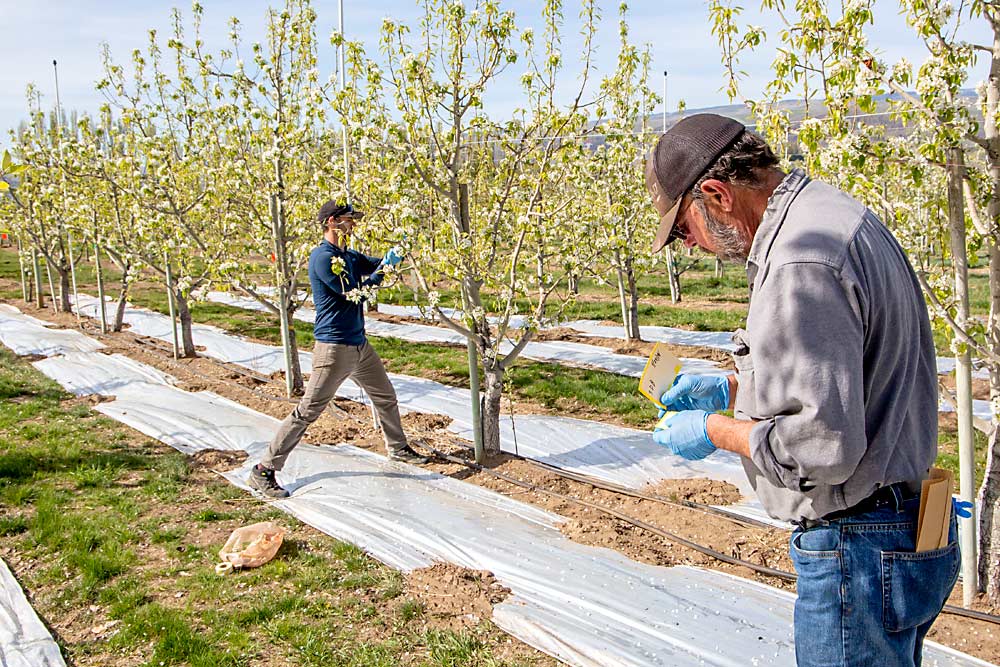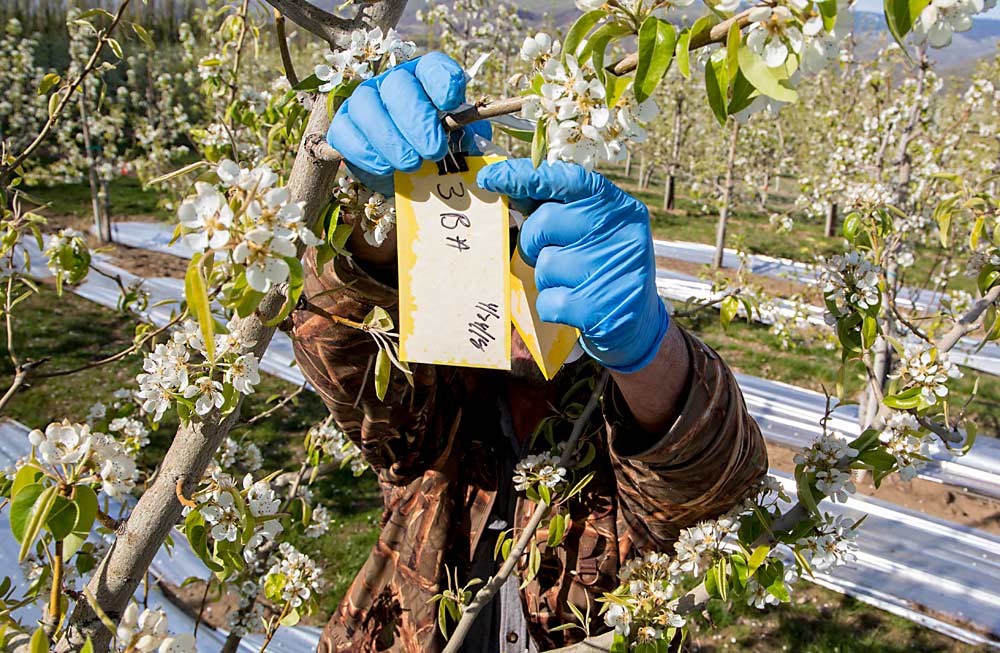
Bruce Greenfield, right, and Louis Nottingham of Washington State University hang trap cards in pear blocks lined with reflective mulch in June at the Sunrise Research Orchard near Wenatchee, Washington. Nottingham, an entomologist, has determined that reflective mulch helps repel pear psylla early in the growing season. (Ross Courtney/Good Fruit Grower)
Reflective mulch not only exposes lower buds to sunlight and keeps weeds down, but it might also keep pear psylla away from your orchard.
That’s what Louis Nottingham, a Washington State University entomologist, has determined. The reflective nature of the fabric disorients the psylla, a pest that excretes sticky honeydew that causes russet marks on fruit.
Stretching the mulch sheets along the floor of orchard alleys in the early spring should keep psylla in check long enough for natural enemies to take over as summer progresses, Nottingham said.
“You set yourself up for biological control for later in the season,” he said.
His mulch trials are just part of his broad, three-year pear IPM project, funded by $354,000 in grants from the Washington Tree Fruit Research Commission. He is scheduled to wrap up the project in June.
In a presentation at WSU’s Pear Day in Wenatchee, Washington, Nottingham told growers that reflective mulch and applications of Surround (kaolin clay) each offered roughly the same level of control against psylla adults as did conventional insecticides, such as Agri-Mek (abamectin) and malathion, from mid-March to the end of April, or dormancy to petal fall.
Only in early May, when leaves started to grow and block the sun from the ground, did the reflective mulch efficacy wane.

Greenfield ties a trap card into place on a pear limb. (Ross Courtney/Good Fruit Grower)
Same story with eggs. Nottingham found no difference in the number of eggs in the blocks treated with Surround, reflective mulch or conventional insecticides.
The early-season results seemed to continue, and even get better, as the season progressed. After petal fall, Nottingham removed the mulch and switched to “soft” products, such as insect growth regulators, and avoided broad-spectrum insecticides for the rest of the year.
By harvest, he found less honeydew on leaves and less fruit damage due to honeydew in the “soft” blocks than in the blocks that had conventional sprays all year. This means using reflective mulch fabric early allows for less reliance on insecticides, which in turn allows for more natural enemies to take over psylla patrol later in the season.
“Our global goal is to enhance these soft programs,” Nottingham said. •
—by Ross Courtney






Leave A Comment